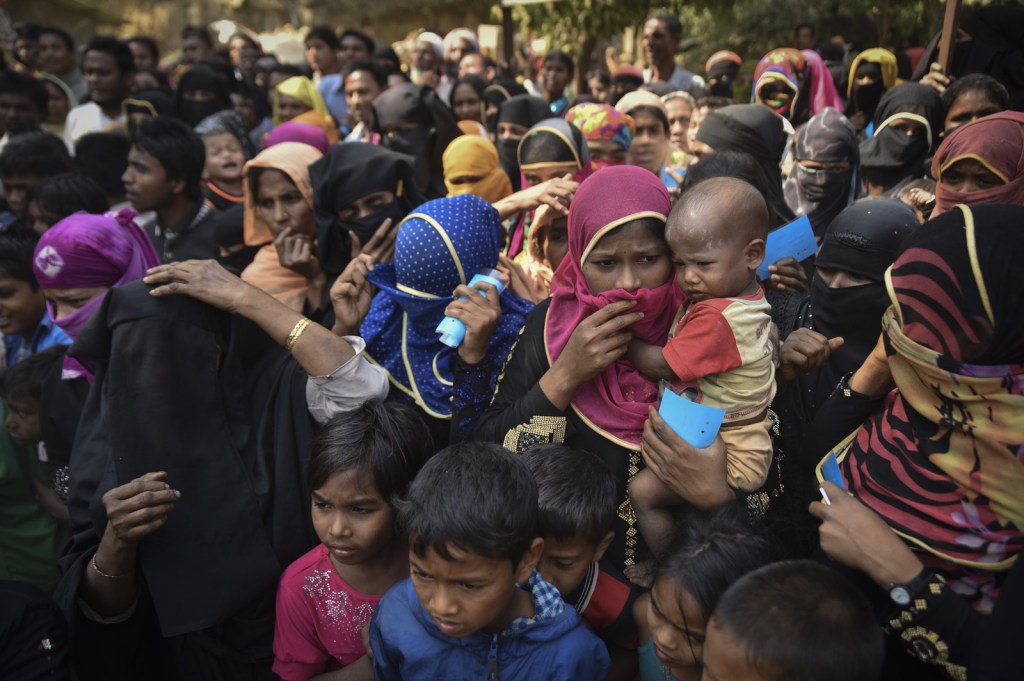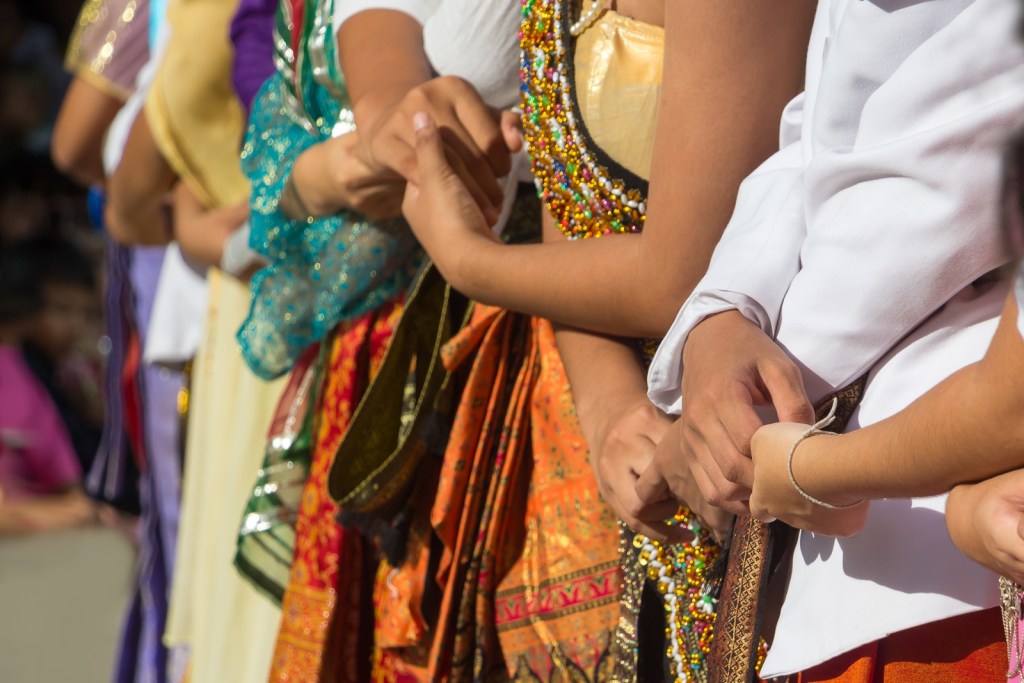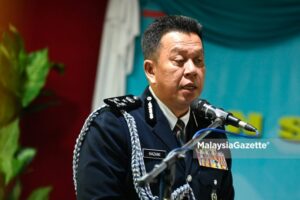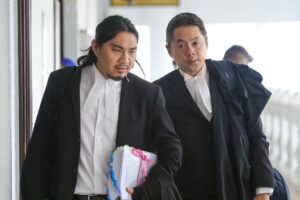By Kirsten Han | New Naratif

When one thinks of Southeast Asia, “human rights” isn’t the first term to spring to mind — unless it’s in a negative context. While the ongoing violence against the Rohingya in Myanmar’s Rakhine State is a particularly egregious example of a human rights catastrophe unfolding in the region, there isn’t a single member state of the Association of Southeast Asian Nations (ASEAN) with a decent human rights record.
The ASEAN Intergovernmental Commission on Human Rights (AICHR) was established in 2009. The body, made up of representatives from all 10 member states, has a mandate “[t]o develop strategies for the promotion and protection of human rights and fundamental freedoms” within ASEAN. But AICHR has come under fire throughout its existence for being ineffectual.
“AICHR right now is not an institution for protection of human rights for us,” says Emerlynne Gil, senior international legal advisor at the International Commission of Jurists in Southeast Asia. “Instead, we view it as an institution that still needs to be further built to be effective in addressing human rights concerns in the region.”
As the commission approaches its tenth year, representatives to AICHR point to structural challenges — including a cap on funding from ASEAN’s External Dialogue Partners — that leaves it lagging when it comes to protecting human rights in the region.
Hobbled by consensus
One major obstacle to any sort of significant movement is the consensus system by which AICHR, and the rest of ASEAN, operates.
This model of decision-making was originally intended to ensure that all countries are equal, in line with policies of non-interference and respect for national sovereignty. If even one member state doesn’t agree with the agenda, consensus can’t be said to have been achieved.
But such a model is now a major hurdle for AICHR, especially since representatives are appointed by the government, with varying levels of independence.
“I think that there is a level of government fearfulness on human rights in general; that AICHR, if being too active, will be progressing towards encroaching on some topics that are sensitive to member states… So they appoint either serving, or concurrently serving, or retired, diplomats,” says Dr Seree Nonthasoot, an international law expert who has served as Thailand’s AICHR representative since 2013. Thailand is one of only two countries to have an open selection process for representatives. The other country is Indonesia.
In a context where ASEAN governments are themselves perpetrating or complicit in human rights abuses, the consensus model can quickly become an obstacle instead of a strength
While some diplomats or state-affiliated appointees might show themselves to be fairly independent-minded, others could end up focusing more on defending their governments’ interests than actually engaging in difficult discussions. In a context where ASEAN governments are themselves perpetrating or complicit in human rights abuses, the consensus model can quickly become an obstacle instead of a strength.
In its 2017 report on AICHR, the Asian Forum for Human Rights and Development (better known as FORUM-ASIA) observed that this practice of allowing any member state to veto decisions has led to “virtual paralysis”.
“Instead of finding innovative ways of reaching meaningful decisions, the AICHR opts for the lowest common denominator, the least controversial topics for studies or other activities, and silence in the face of even the most serious human rights violations in the region,” it said.
Speaking to New Naratif over the phone, Edmund Bon, a human rights lawyer and Malaysia’s AICHR representative, points out the difficulty of getting everyone to adopt a shared position, even on issues one might not have expected to be controversial: “In Singapore, I presented AICHR Malaysia’s position paper requesting AICHR to adopt [a common position on] what the human right to safe drinking water and sanitation means… We said something like, ‘water must be available, accessible, of quality, not distributed in a way that discriminates [against] marginalised communities’. However, there was no agreement because some [of the other representatives] felt it was too early to adopt such a common position.”
Finding an approach
There’s no shortage of human rights issues that urgently require redress in the region. Every country has something to answer for, from extrajudicial killings and enforced disappearances, to clampdowns on civil society and the press.
“AICHR should be able to at the very least receive complaints of human rights violations,” says Gil. “It is still very far from adjudicating these complaints — like a court does. But, at the very least, it should be able to address human rights violations through statements of condemnation, bilateral discussions with states, etc.”
“When we can attach ourselves, or use certain agendas that people can see as a common area… you can use that and explore it and make people aware that the intersectionality is there”
The reality of AICHR requires a calculated approach. As a two-term representative, Dr Seree has developed his own strategy. For the past four years, he’s been working on disability rights. His efforts have borne some fruit: ASEAN is working on an ASEAN Enabling Masterplan that will mainstream the rights of people with disabilities.
Raising disability rights also gives him the opportunity to push the boundaries further: “[T]he intersectionality of disability provides me an entry point to foster awareness of even more sensitive issues, like freedom of expression of persons with disability — we’re talking about political rights now. We can even talk about right to life, the death penalty, when it’s applicable to persons with disabilities. Persons with disabilities who are LGBTI… This sort of thing.”
He smiles. “When we can attach ourselves, or use certain agendas that people can see as a common area… you can use that and explore it and make people aware that the intersectionality is there. So you can branch out on more sensitive issues.”
“Circling, circling, circling”
In an email in response to New Naratif’s questions, Dr Dinna Wisnu, the Indonesian AICHR representative, points to some achievements during her term, which began in 2016: regularising outreach to stakeholders through activities such as the AICHR Youth Debate on Human Rights, and giving 28 civil society organisations consultative status when previously there’d been none. Such moves have allowed AICHR to do more promotional work in relation to human rights, engaging activists, advocates and young Southeast Asians.
Still, these activities come across as woefully inadequate given the scale and urgency of the problem. It’s been over a year since the latest brutal crackdown on the Rohingya by the Burmese military in Rakhine State, pushing hundreds of thousands of Rohingya refugees across the border to neighbouring Bangladesh. The word “genocide” has been used by human rights organisations, humanitarian groups and even the United Nations. AICHR’s roundtable dialogues and youth debate tournaments don’t even come close to addressing an injustice of such staggering proportions.

Representatives eager to start tackling the crisis have been stymied by the consensus model. “I started a discussion in 2013 [when I was first appointed]… but I wasn’t successful because the characters and the attitude of representatives then did not permit us to come to an agreement,” says Dr Seree.
“Now, in this batch… we have begun to talk more openly about, not Rohingya, but Rakhine in general… We’re like pushing, walking around the bush. Circling, circling, circling.”
“A lot has to do with the chair of ASEAN,” Bon says. The chairmanship of ASEAN cycles through the member-states every year, with deference given to the chair to set the agenda and push for consensus on issues. In 2018, Singapore is the ASEAN chair, taking over from the Philippines.
He adds: “The chair of ASEAN will try and achieve consensus on a lot of things. On Rakhine State I think Malaysia has been very vocal, but unfortunately as the country that’s not chairing ASEAN, we have not been able to create as much discernible traction on the issue in ASEAN.”
“The Rakhine issue has been discussed behind closed doors in AICHR,” Singapore AICHR representative Barry Desker wrote to New Naratif in an email. “We have emphasised that the humanitarian situation is of concern to all ASEAN countries.”
A (potential) step back
As if there aren’t enough limits on what AICHR can do, additional restrictions could be on the horizon. This year, proposals have been made to cap funding from ASEAN’s External Dialogue Partners for AICHR activities.
There’s apparently a concern from some member states that AICHR activities might be subjected to foreign influence, but Bon disagrees with this argument. “When AICHR was formed in 2009, AICHR representatives and member-states were strongly encouraged to tap into External Dialogue Partner funds for human rights work,” he says.
AICHR activities, he points out, already have to go through three layers of consensus-based approval within ASEAN. “So suddenly for one of the member countries to now say that there’s a lack of ‘ASEAN ownership’ of AICHR activities is incredible because we’ve followed this process well since 2009. Why has there been a sudden change of heart after nine years? Are they now saying that AICHR has conducted its activities primarily influenced by External Dialogue Partners? Because I don’t think that is the case.”
He adds: “This budget cap is done unilaterally without effective and proper consultation with AICHR representatives. We are not in the picture at all! How can this be if we are the ones who are doing the programming?”
“We’ve only been addressing one side [of the coin], which is the operational efficiency within the organisation… We are forgetful of the other side, which is the human rights efficiency itself”
Other representatives also have their reservations. “Funding restrictions that some member states are campaigning [for] and [which] became centre stage [at] meetings during the AICHR Singapore chairmanship has hampered the approval of AICHR Programme Activities of 2019,” writes Dr Dinna.
“If it’s implemented as these countries desire… [it] will make implementation of [the] AICHR Programme Activities tougher, taking lengthier time, possibly delaying help also for those in need of support from AICHR as the overarching ASEAN human rights body,” she adds.
Leo M. Herrera-Lim, the AICHR representative from the Philippines, agrees. “I am not in favour of the cap on the funds shared by Dialogue or Sectoral Partners,” he wrote to New Naratif in an email. “I do not see its value in the current way that AICHR does its activities. It limits our capability to achieve good collaboration in the promotion of human rights in the region.”
But Desker takes a different position. “There have been various proposals as part of the ongoing efforts to improve the efficiency and effectiveness of AICHR,” he writes. “All the proposals are still being discussed by AICHR, so we can’t prejudge the final outcome, but I do not believe that any of the proposals will adversely affect AICHR’s ability to carry out its mandate for the promotion and protection of human rights in ASEAN.”
For Dr Seree, talk of efficiency misses the bigger picture. “It’s frustrating to note the development — so-called making AICHR more ‘efficient’,” he says. “We’ve only been addressing one side [of the coin], which is the operational efficiency within the organisation… We are forgetful of the other side, which is the human rights efficiency itself, i.e. how effective, efficient, we should be in protecting people. We haven’t addressed that!”
Only as strong as its representatives
Herrera-Lim hopes that AICHR can “focus more on developing binding norms within the region towards the protection and promotion of human rights” as it moves forward. “We have to provide the mechanisms and the processes so that ASEAN [can] realise a people-centric and mainstreamed human rights approach in the region,” he says.
Dr Seree is now approaching the end of his second, and last, term as Thailand’s AICHR representative. For him, the crux of the matter is clear: “[I]t all boils down to the fact that the efficacy and the effectiveness of the AICHR depends largely on the individuality of the representative.”

There’s no guarantee that appointed individuals are experienced in or qualified to work on human rights issues, much less that they have, as Dr Seree puts it, “the heart and mind and time for human rights.”
Moving forward, Bon also urges AICHR to position itself as “the standard setting body of the region”. “We [should] set standards, interpret what the rights in the ASEAN Human Rights Declaration mean, do assessments of how countries have effectively or not effectively realised the rights under the [declaration],” he says.
He agrees with Dr Seree that the appointment of representatives is key. “We need to have human rights experts as AICHR representatives,” he insists. “There needs to be a certain minimum qualification to be an AICHR representative. You need to be a human rights expert. You shouldn’t just be a government functionary.”
Source: https://newnaratif.com/journalism/circling-around-human-rights/share/xuna/4cea2358d3cc5f8cd32397ca9bc51b94/. Archived at https://perma.cc/47EE-GKVJ.



